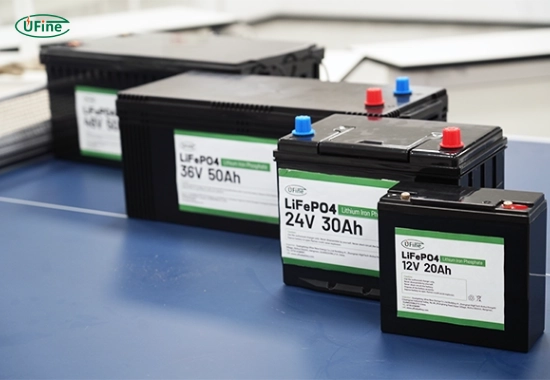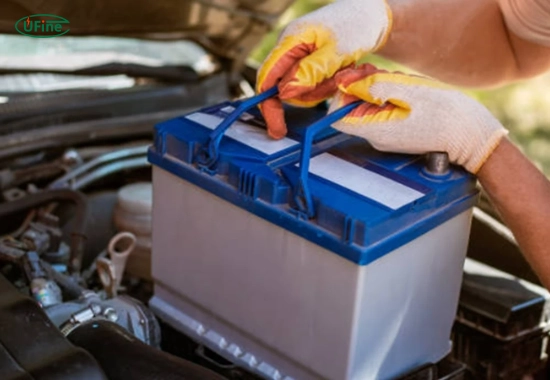Selecting the right lightweight car battery enhances your vehicle’s performance and efficiency. With advancements in battery technology, lightweight options are becoming increasingly popular among car enthusiasts and everyday drivers alike. This guide will help you navigate the various aspects of choosing the best lightweight car battery tailored to your specific needs, ensuring you make an informed decision that benefits your vehicle.
Part 1. What is a lightweight car battery?
A lightweight car battery is designed to be more efficient and manageable than traditional lead-acid batteries. These batteries typically utilize advanced materials such as lithium-ion or lithium iron phosphate, significantly reducing weight while enhancing power output.
Key Features of Lightweight Car Batteries:
- Reduced Weight: These batteries can weigh up to 50% less than conventional options, making them easier to handle.
- Enhanced Performance: They often provide higher cranking amps, which translates to better starting power, especially in cold weather.
- Longer Lifespan: Many lightweight batteries have a longer cycle life than their traditional counterparts, offering better value over time.
Part 2. Why choose a lightweight car battery?
Choosing a lightweight car battery comes with several advantages:
- Improved Fuel Efficiency: A lighter battery reduces overall vehicle weight, enhancing fuel economy.
- Better Handling: The reduced weight can improve vehicle handling and performance, particularly in sports cars or performance vehicles.
- Easier Installation: Lightweight batteries are easier to install and remove, simplifying maintenance tasks.
Part 3. What are the different types of lightweight car batteries?
When selecting a lightweight car battery, it’s essential to understand the different types available:
- Lithium-Ion Batteries: Known for their high energy density and lightweight properties, they are ideal for performance vehicles.
- Lithium Iron Phosphate (LiFePO4): This material offers excellent thermal stability and safety, making it suitable for various applications.
- Absorbent Glass Mat (AGM): While slightly heavier than lithium options, AGM batteries are still lighter than traditional lead-acid batteries and perform well.
Part 4. How to determine the right size for your vehicle?
Selecting the correct size is crucial for optimal performance. Here’s how you can determine the right size:
- Check Your Owner’s Manual: This will provide a specific battery size and type.
- Measure Specifications Your Current Battery: If you’re replacing an old battery, measure its dimensions to find a comparable lightweight option.
- Consider Terminal Locations: Ensure that the terminal locations match your vehicle’s requirements for proper connectivity.
Part 5. What specifications should you look for?
When evaluating lightweight car batteries, pay attention to these specifications:
- Cold Cranking Amps (CCA): This measures the battery’s ability to start your vehicle in cold temperatures. A higher CCA rating is preferable for colder climates.
- Reserve Capacity (RC): This indicates how long the battery can run on its power without being charged. Higher RC values are beneficial for extended use without a charge.
- Voltage Rating: Most automotive batteries operate at 12 volts; ensure compatibility with your vehicle.
Part 6. How does the capacity of a car battery affect its overall performance?
The capacity of a car battery directly influences its overall performance in several ways:
- Starting Power: A higher capacity means more energy is used to start the engine, which is especially important in colder conditions where more power is needed.
- Accessory Power: If you frequently use electronic accessories like GPS systems or sound systems while the engine is off, a higher capacity ensures these devices can run without draining the battery too quickly.
- Longevity: Batteries with higher capacity tend to last longer under normal usage conditions since they are less likely to be fully discharged during operation.
Part 7. What are the differences between maintenance-free and maintenance-required car batteries?
Understanding the differences between maintenance-free and maintenance-required batteries can help you choose what fits your lifestyle best:
Maintenance-Free Batteries:
- These batteries are sealed and do not require regular checks or fluid top-ups.
- They are designed with advanced technology that minimizes water loss.
- Ideal for users who prefer convenience and lower maintenance efforts.
Maintenance-Required Batteries:
- These require periodic checks of electrolyte levels and may need water added.
- They can often be refurbished or reconditioned if they run low on fluid.
- Suitable for those who are comfortable performing regular maintenance tasks.
Part 8. How much should you expect to spend?
The price of lightweight car batteries can vary significantly based on type and brand:
- Lithium-Ion Batteries: Typically range from $300 to $1,000 depending on capacity and brand.
- LiFePO4 Batteries: Generally priced between $400 and $800.
- AGM Batteries: Usually cost between $150 and $300.
While initial costs may be higher for lightweight options, consider their longevity and potential fuel efficiency savings over time.
Part 9. Where can you purchase lightweight car batteries?
You can find lightweight car batteries at several places:
- Auto Parts Stores: Local stores often carry a selection of lightweight options.
- Online Retailers: Websites like Amazon or specialized automotive sites provide extensive choices with customer reviews.
- Manufacturer Websites: Purchasing directly from manufacturers like Ufine Battery, a professional lithium-ion battery manufacturer that offers OEM and ODM services, can sometimes yield better warranties or deals.
Part 10. How to install a lightweight car battery?
Installing a lightweight car battery is relatively straightforward:
- Gather Your Tools: Wrenches, safety gloves, and a multimeter.
- Disconnect the Old Battery: Always disconnect the negative terminal first, followed by the positive terminal.
- Remove the Old Battery: Carefully lift it out of its compartment.
- Install the New Battery: Place it in the same orientation as the old one and connect the positive terminal first, followed by the negative terminal.
- Test Your Installation: Start your vehicle to ensure everything is functioning correctly.
Part 11. FAQs
-
What is the lifespan of a lightweight car battery?
Lightweight car batteries typically last 5 to 10 years, depending on usage and maintenance practices. -
Can I use a lightweight battery in any vehicle?
While many vehicles can accommodate lightweight batteries, always check your owner’s manual for compatibility before purchasing. -
Are lightweight car batteries safe?
Lightweight car batteries are safe and reliable vehicle power sources when used correctly and maintained properly. -
Do I need special chargers for lightweight batteries?
Most standard chargers will work; however, it is recommended to use chargers explicitly designed for lithium or AGM batteries for optimal performance. -
How do I know if my battery needs replacement?
Signs include difficulty starting your vehicle, dimming headlights, or physical damage to the battery casing.
Related Tags:
More Articles

How to Choose the Best Floor Scrubber Battery for Commercial Cleaning?
Selecting the ideal floor scrubber battery ensures a long runtime, rapid charging, and minimal maintenance for efficient commercial cleaning operations.
Battery for Blower vs Battery for Leaf Vacuum: Which One Should You Choose?
Battery for blower vs leaf vacuum—learn the key differences in power, fit, and runtime to choose the right battery for your outdoor tool needs.
How to Choose the Right Battery for Blower?
Choosing the right blower battery? Consider voltage, capacity, chemistry & usage. This guide helps match the best battery for peak performance.
How to Choose the Best Insulated Battery Box for Lithium Batteries?
Choosing the Best Insulated Battery Box for Lithium Batteries? Discover key factors such as size, material, and safety for optimal protection and performance.
7 Critical Elements on a Lithium Battery Shipping Label
What must be on a lithium battery shipping label? Learn 7 key elements to ensure safety, legal compliance, and correct handling across all transport modes.






